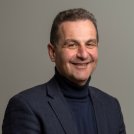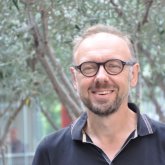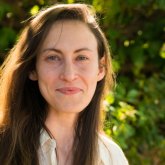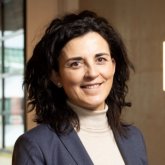PhD position on the pilot scale production of hollow fiber membranes and prototype dialyzers for improved dialysis therapy.
Are you passionate about developing artificial organs and provide solutions for improved patient treatment?
We offer a challenging PhD position in the group Advanced Organ bioengineering and Therapeutics (AOT)
Most patients with kidney failure receive dialysis therapy, because of a donor organ shortage. Unfortunately, current filters cannot remove all toxins from patients’ blood, especially protein-bound uremic toxins, leading to high mortality and poor quality of life. Moreover, dialysis therapy requires lots of water.
This research project aims to establish pilot scale production of hollow fiber membranes and prototype dialyzers for improved dialysis therapy.
As PhD researcher you will work within a multidisciplinary project which unites expertise from various fields, aiming to improve the quality of life for people in need of organ replacement. It is therefore essential to show willingness to look beyond disciplinary boundaries.
The project is funded by the NXTGEN Biomed growth fund project on artificial organs.
NXTGEN aims to develop and produce smart and responsive extracorporeal and implantable artificial organs. To achieve this, it pioneers advanced high-tech building blocks that can be produced both reliably and affordably.
You will work independently, and you need to have excellent theoretical, experimental, and writing skills. You also expected to write and present excellently in English. You will mentor BSc and MSc students and work collaboratively with multidisciplinary team members.
Information and application
Are you interested in this position? Please send your application via the 'Apply now' button below before August 20, and include:
- A cover letter (maximum 2 pages A4), emphasizing your specific interest, qualifications, motivations to apply for this position.
- A Curriculum Vitae, including a list of all courses attended and grades obtained, and, if applicable, a list of publications and references.
- An IELTS-test, Internet TOEFL test (TOEFL-iBT), or a Cambridge CAE-C (CPE). Applicants with a non-Dutch qualification and who have not had secondary and tertiary education in English can only be admitted with an IELTS-test showing a total band score of at least 6.5, internet. TOEFL test (TOEFL-iBT) showing a score of at least 90, or a Cambridge CAE-C (CPE).
About the department
The Advanced Organ bioengineering and Therapeutics (AOT) group consists of 3 research chairs: (1) (Bio)artificial organs (2) Biomaterials and regenerative medicine, (3) Engineered therapeutics. AOT’s mission is:
1. To provide innovative technological solutions to patients suffering from chronic and malignant diseases to gain a longer, better and healthier life.
2. To provide excellent education to a new generation of professionals with interdisciplinary knowledge able to meet the needs for the next century related to patient treatment.
This mission is achieved through the application of state-of-the-art technologies at the interface of chemistry, biomaterials and membrane science, additive manufacturing, bio fabrication, tissue engineering and nanomedicine.
AOT combines unique expertise spanning the fields of (bio)artificial organs, targeted therapeutics and biomaterials and regenerative medicine. Our activities are embedded in challenging and interactive training programs for bachelor and master students and graduate and post-graduate students.
We strive to implement innovative technologies from the benchtop to the clinic, and to valorize our findings via initiating new spin-off companies
About the organisation
The Faculty of Science & Technology (Technische Natuurwetenschappen, TNW) engages some 700 staff members and 2000 students in education and research on the cutting edge of chemical technology, applied physics and biomedical technology. Our fields of application include sustainable energy, process technology and materials science, nanotechnology and technical medicine. As part of a people-first tech university that aims to shape society, individuals and connections, our faculty works together intensively with industrial partners and researchers in the Netherlands and abroad, and conducts extensive research for external commissioning parties and funders. Our research has a high profile both in the Netherlands and internationally and is strengthened by the many young researchers working on innovative projects with as doctoral candidates and post-docs. It has been accommodated in three multidisciplinary UT research institutes: Mesa+ Institute, TechMed Centre and Digital Society Institute.





